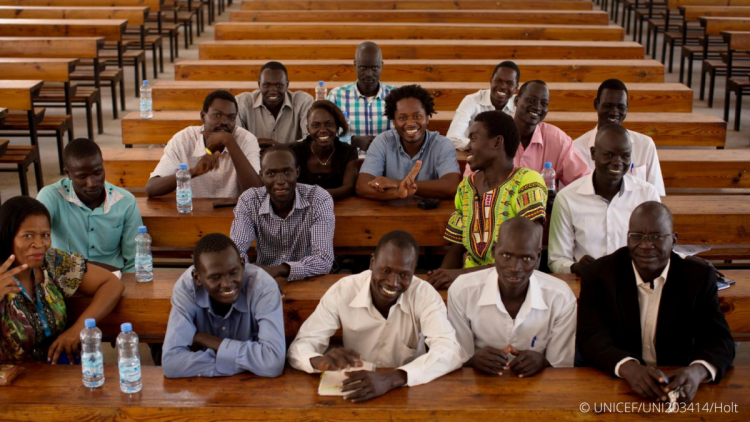
Submitted by: Michael Byamukama Ntanda and John Mary Ssekate, National Association of Social Workers of Uganda (NASWU).
Over the last two decades, demand for higher education in East Africa has resulted in an exponential increase in the number of public and private universities. Currently, 140 universities are part of the Inter-University Council for East Africa (IUCEA) – an East African Community (EAC) institution focused on ensuring coordination and collaboration of academic activities within all accredited universities in the region. The majority of such universities offer social work courses.
In 2006, IUCEA initiated a process aimed at harmonising regional quality assurance by establishing a common East African Quality Assurance Framework and a regional quality assurance office at the IUCEA Secretariat, and by setting regional higher education benchmarks and quality standards based on internationally recognised frameworks.
On May 5, 2023, the IUCEA met with representatives from the seven partner states (Burundi, Kenya, Rwanda, South Sudan, United Republic of Tanzania, Uganda and Democratic Republic of Congo) to discuss standardizing social work education within the EAC. The benchmarks will:
- serve as minimum standards for social work education;
- be used as a point of reference for evaluating performance and level of quality; and
- provide a means for the academic community to better articulate the programmes in a specific subject or subject area. The benchmarks will also provide standards for the skills and knowledge students should be able to demonstrate upon graduation.
The benchmarking process will first involve a review of the social studies curriculum in the region in general, as well as the social work and social administration curriculum more specifically. The team will then discuss and agree upon a framework for the benchmarks, identify key stakeholders and define their roles, and establish a road map to design a Bachelor of Social Work and Social Administration programme for East African Higher Learning Institutions. The benchmarks will also consider existing member country social work standards and the Global Standards for Social Work Education and Training, as approved by the International Federation of Social Workers (IFSW) and the International Association of Schools of Social Work.
The benchmarking and standardization process will answer the following questions:
- What is the current status of Social Work and Social Administration programmes in East Africa?
- Which constitutes quality in the design and delivery of Social Work and Social Administration programmes within each partner State?
- How can the design and delivery of Social Work and Social Administration programme in East Africa be harmonized so as to ascertain the quality, comparability and mobility of the university students across the region?
- How can university lecturers be empowered to cope with the challenges in delivery of Social Work and Social Administration programmes in East African universities?
- How can the key stakeholders in Social Work and Social Administration higher learning programmes be involved in improving quality of social service delivery in East African?
- What will be the areas of focus/specialization and the courses in the Social Work and Social Administration programme?
The process will lead to a common understanding on the framework and the roadmap for the development of the benchmarks for the Bachelor for Social Work and Social Administration and the implementation plan according to Proffesor Michael Mawa and Proffesor Ndabarushimana the Head of Quality Assurance and Qualifications Framework Unit at the IUCEA and Senior Quality Assurance and Standards officer respectively.On his side, Mr. Michael Byamukama Ntanda, the president of the National Association of Social Workers of Uganda-(NASWU) shared with stakeholders the need to engage and make wider consultations with other key stakeholders at regional and international level like the Global Social Service Workforce Alliance, and the IFSW for quality and sustainable standards.
Stay tuned for more information as this process continues.

